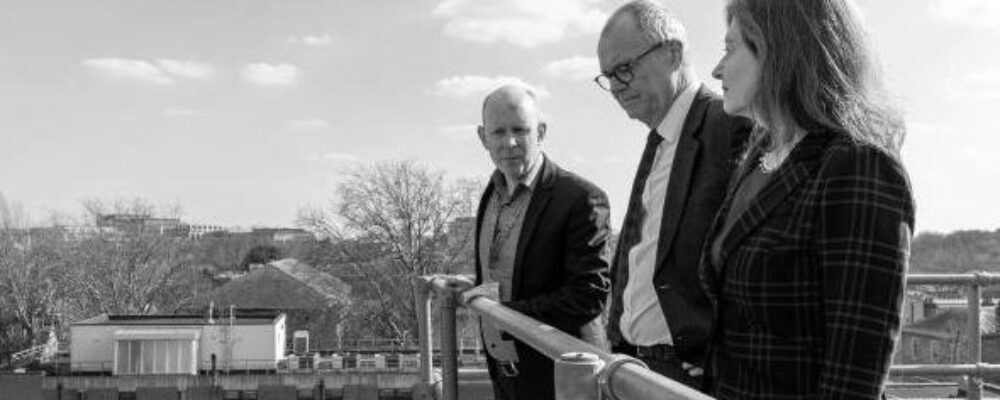The recent conflict in Lebanon has deepened a national education crisis in which children have already lost up to 60% of school time over the past six years, new research warns.
The report, by the Centre for Lebanese Studies and the University of Cambridge’s REAL Centre, is the first to assess the state of education since Israel began its ground offensive in Lebanon in October. Using surveys and interviews with parents and teachers, it provides a snapshot of the situation a few weeks before the new ceasefire between Israel and Hezbollah.
The study stresses that even if that ceasefire holds, a co-ordinated, forward-thinking response is essential to prevent further learning losses in an already fragile education system.
Before the recent conflict, Lebanese schools had endured over a decade of compounded crises, including an influx of Palestinian and Syrian refugees, a major financial crisis, the 2020 Beirut explosion, and the COVID-19 pandemic. Since 2018, the authors calculate, students have missed more than 760 teaching days due to strikes, disruption and closures.
The report shows that the effects of the latest violence have been uneven, depending on where families and teachers are based and their immediate circumstances. Refugee children and students with disabilities have been disproportionately affected and are among those who face the greatest risk of missing out further, even as the education system struggles to recover.
Dr Maha Shuayb, Director of the Centre for Lebanese Studies and a researcher at the University of Cambridge’s Faculty of Education: “The war has deepened learning losses that were already near-catastrophic. Whatever happens next, flexible, inclusive, multi-agency strategies are urgently needed to ensure education reaches those who need it most.”
“Without thorough response planning, existing inequalities will become more entrenched, leaving entire sections of the younger generation behind.”
The report is the second in a series examining the impact of war on education in the Middle East. The previous report, on Gaza, warned that conflict there could set children’s education back by several years.
REAL Centre Director Prof Pauline Rose said: “In Lebanon and Gaza, it is not only clear that violence, displacement and trauma are causing devastating learning losses; we also need a much more co-ordinated response. Education should not be an afterthought in times of crisis; it is vital to future stability.”
More than 1.3 million civilians have been displaced in Lebanon since Israel escalated its military operations. The new study was undertaken at the end of October, and involved a survey with 1,151 parents and teachers, supplemented with focus groups and interviews.
The authors calculate that by November, over 1 million students and 45,000 teachers had been directly affected by the conflict. About 40% of public (state-run) schools had been converted into shelters. A further 30% were in war zones, severely limiting space for schooling.
Lebanon’s Ministry of Education and Higher Education (MEHE) attempted to reopen public schools on 4 November, but the study shows that for many people, violence, displacement and inadequate infrastructure impeded the resumption. Researchers found that 303 public schools were running in-person learning and 297 functioning online, but in conflict-hit regions like Baalbek-Hermel, the South, and Nabatiyyeh, barely any were physically open.
Many of the survey participants were living in shelters or overcrowded shared accommodation, where online learning – often the only option available – was difficult. Financial pressures, exacerbated by the war, have further disrupted education. 77% of parents and 66% of teachers said the conflict had reduced their incomes amid rising living costs.
While all teachers and parents wanted education to resume, the study therefore found that they were not universally prepared. Only 19% of teachers in areas heavily affected by the fighting, for example, considered restarting education a “high priority”. They also tended to prefer online learning, often for safety reasons, while those in less disrupted regions felt better prepared to resume education in-person.
Both parents and teachers highlighted the resource shortages hindering learning. Many lacked reliable internet, digital devices or even electricity. For example, only 62% of teachers and 49% of parents said they had an internet connection.
The report also highlights the extremely difficult experiences of Palestinian and Syrian refugee children and those with disabilities: groups that were disproportionately affected by systemic inequalities before the conflict began.
The authors estimate that as many as 5,000 children with disabilities could be out of school, with some parents reluctant to send children back due to a lack of inclusive provision. Refugee families, meanwhile, are among those who most urgently need food, shelter and financial help. Despite this, Syrian parents were statistically more likely to consider education a high priority. This may reflect concerns that they have been overlooked in MEHE’s plans.
Some families and teachers suggested the government’s November restart was proving chimerical. “The authorities claim that the school year has been launched successfully, but this isn’t reflective of reality,” one teacher said. “It feels more like a drive for revenue than a genuine commitment.”
MEHE’s attempts at a uniform strategy, the researchers stress, will not help everyone. “The focus has largely been on resuming schooling, with little attention paid to quality of learning,” they write, adding that there is a need for a far more inclusive response plan, involving tailored strategies which reflect the different experiences of communities on the ground.
The report adds that this will require much closer collaboration between government agencies, NGOs, universities, and disability-focused organisations to address many of the problems raised by the analysis, such as financial instability, a lack of online learning infrastructure, and insufficient digital teaching capacity.
Even if the ceasefire holds, challenges remain. Many displaced families may not return home for weeks, while schools may still be used as shelters or require repairs. Temporary learning spaces, targeted infrastructure restoration, and trauma-informed approaches to helping children who need psychosocial learning recovery, will all be required.
Yusuf Sayed, Professor of Education, University of Cambridge said: “Everyone hopes that Lebanon will return to normality, but we have grave reservations about the quality, consistency and accessibility of education in the medium term. Addressing that requires better data collection and monitoring, a flexible plan and multi-agency support. Our working assumption should be that for more than a million children, this crisis is far from over.”
“The University of Cambridge is a public collegiate research university in Cambridge, England. Founded in 1209, the University of Cambridge is the third-oldest university in continuous operation.”
Please visit the firm link to site






